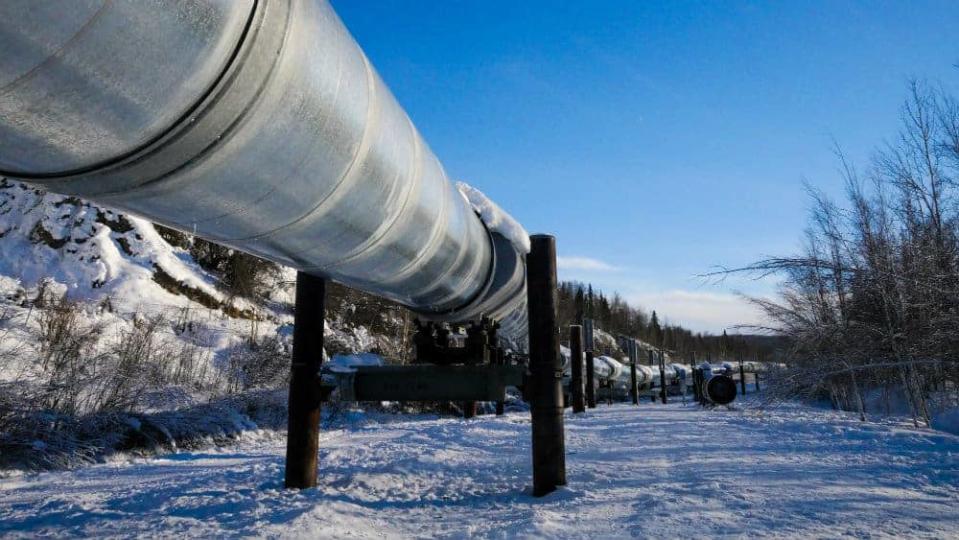Ranking Canada’s Pipelines: Which 1 Should You Buy Today?

I’m convinced that the pipeline sector will continue to make Canadian investors rich over the next few decades.
The latest pipeline drama confirms this. We desperately need more pipelines, yet it seems that every major project grinds to a halt early in the approval process. That’s even if these new projects get approved in the first place.
This strikes me as a fantastic investment opportunity. If building new pipelines is virtually impossible, then the existing ones end up being more valuable. We all talk about investing in assets that can’t be disrupted by competition; a pipeline would certainly fall into that category.
The only question investors must ask themselves is which pipeline to choose. Let’s take a closer look at three of the largest, Enbridge Inc. (TSX:ENB)(NYSE:ENB), TC Energy (TSX:TRP)(NYSE:TRP) and Inter Pipeline Ltd. (TSX:IPL).
Asset mix
If an investor is looking for a pure play on growth in the oil sands, their best bet would be to load up on Inter Pipeline shares. Approximately 50% of its revenue comes from three pipelines that transport bitumen from the region to refineries, with plenty of excess capacity when oil sands production expands.
Inter Pipeline also owns various conventional oil and natural gas pipelines, as well as energy storage assets.
Both Enbridge and TC Energy offer much more diverse portfolios. Enbridge is weighted more toward oil pipelines, but it still has a large natural gas component. Enbridge also owns Ontario’s largest natural gas utility, which provides predictable income and a wind power generation subsidiary.
TC Energy is more weighted toward natural gas pipelines, and it has further diversified into power generation. Its Bruce Energy subsidiary provides some 6,600 mw of nuclear energy annually.
All three of these companies have great assets, but I have to rank Enbridge and TC Energy as the winners in this category. You have to like the stability of owning utility assets.
Growth potential
Despite getting largely shut out of large national pipeline projects, the two largest pipeline companies in Canada still have plenty of expansion potential.
Enbridge is currently spending $5.9 billion to replace the Canadian part of its Line 3 pipeline, one of the main pipelines transporting crude from Canada into the U.S. It is also spending US$2.9 billion to replace the American side of the pipeline.
TC Energy has some $30 billion worth of growth projects planned over the next five years. The largest is the Coastal Gas Link, a $6.2 billion natural gas pipeline to the planned LNG terminal in Kitimat, B.C.
Inter Pipeline has gone a different direction, though. It is spending $3.5 billion on the Heartland Petrochemical Complex, a propane dehydrogenation and a polypropylene facility. This unique growth path is projected to add some $500 million to the company’s EBITDA when completed in 2021.
Valuation
Each company uses slightly different metrics for earnings, but they are close enough for approximate analysis.
Enbridge reported distributable cash flow of $4.42 per share in 2018, putting shares at approximately 11 times that figure today. TC Energy reported distributable cash flow of $6.52 per share, putting shares at just under 10 times trailing cash flow. Inter Pipeline prefers to report funds from operations, which checked in at $2.80 per share.
This makes Inter Pipeline the cheapest pipeline company featured today, with shares trading at 7.5 times funds from operations at writing.
Dividends
Inter Pipeline gives investors an 8.1% yield today with dividend growth annually since 2009. Investors should also note the company’s low payout ratio, which is approximately 60% of funds from operations. But I don’t expect Inter Pipeline to grow the dividend by more than 3-5% annually in the short-term. It will need capital to pay for Heartland.
Both Enbridge and TC Energy offer consistent histories of dividend growth, attractive payout ratios, and perhaps most importantly, easy potential to grow their payouts by 8-10% annually going forward. Enbridge offers the higher current yield today, with a payout of 5.9%. TC’s dividend is still an attractive 4.6%.
Still, I have to give the dividend crown to Enbridge.
Which should you choose?
I don’t think investors should settle for just one. I personally own all three of these companies in my portfolio and will continue to hold for a very long time.
But if you forced me to choose a winner today, I’d choose Enbridge. I like the company’s growth potential, its large size, and its attractive payout.
More reading
Get $250 a Month in Passive Income From This Little-Known REIT
Make a Lifetime of Growing Passive Income With These 2 Quality REITs
Fool contributor Nelson Smith owns shares of ENBRIDGE INC, INTER PIPELINE LTD, and TRANSCANADA CORP. The Motley Fool owns shares of Enbridge. Enbridge is a recommendation of Stock Advisor Canada.
The Motley Fool’s purpose is to help the world invest, better. Click here now for your free subscription to Take Stock, The Motley Fool Canada’s free investing newsletter. Packed with stock ideas and investing advice, it is essential reading for anyone looking to build and grow their wealth in the years ahead. Motley Fool Canada 2019

 Yahoo Finance
Yahoo Finance 